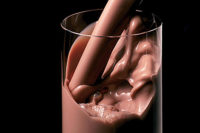Leaders of the two major dairy industry groups jointly rejected a suggested federal excise tax on flavored milk drinks, such as chocolate and strawberry that contain sugar-based sweeteners.
Connie Tipton, president and CEO of the International Dairy Foods Association, and Jerry Kozak, president and CEO at the National Milk Producers Federation, said flavored milk is part of the solution to the child obesity problem, not a cause, and its consumption needs to be encouraged among kids, not discouraged by a new tax.
A tax on sugar-sweetened beverages, including flavored milk, was included in a list of revenue options released May 18 by Senators Max Baucus (D-Mont.) and Charles Grassley (R-Iowa), chairman and ranking Republican, respectively, on the Senate Finance Committee. While no rate was specified, a tax of three cents per 12 ounces could raise as much at $50 billion over 10 years, according to a congressional estimate.
“Milk is a nutrient-rich beverage that is good for kids,” Tipton said. “We need to encourage them to drink more and it’s no secret kids love flavored milk. Processors have developed low-fat flavored milk options that don’t have excessive calories, but switching to no-calorie sweeteners has proved problematic. Still, flavored milk is an excellent way to increase milk consumption and make children’s diets more nutritious.”
Added Kozak: “Milk is unique in that it provides nine essential nutrients, including calcium and other nutrients kids don’t get enough of. Limiting consumption of flavored milk could easily reduce intakes of nutrients kids need, and that come in a package they enjoy. In addition, research has shown that children who drink flavored along with unflavored milk don’t have higher body mass indexes than non-milk drinkers.”
The 2005 Dietary Guidelines for Americans -- the official government diet advice -- bolsters the argument for flavored milk, Tipton and Kozak said. According to the guidelines, adding a small amount of sugar to nutrient-rich foods such as reduced-fat milk enhances their appeal and improves diet without adding excessive calories.
Likewise, Tipton and Kozak said, the American Academy of Pediatrics encourages consumption low-fat or fat-free milk, including flavored milk, as an alternative soft drinks.
“Taxing flavored milk because it includes a small amount of sugar is penny-wise and pound-foolish, from a nutritional standpoint," Tipton said. "Studies show that low-fat chocolate milk is kids’ nutritious beverage of choice. It would be ridiculous to discourage kids from drinking it.”
“It’s both bad nutrition policy and bad tax policy to lump milk in with other beverages,” Kozak added. “Kids need more calcium and flavored milk provided it’s without adding too many calories. Why would anyone discourage consumption of flavored milk with a new tax?”
Kozak represents the farmers who produce the nation’s milk, while Tipton represents the processors who pasteurize it and turn it into yogurt, cheese and other finished products.
The sugar-sweetened beverage tax was one alternative in a 41-page paper listing options for funding a $1 trillion healthcare overhaul.
Get our new eMagazine delivered to your inbox every month.
Stay in the know on the latest dairy industry trends.
SUBSCRIBE TODAYCopyright ©2024. All Rights Reserved BNP Media.
Design, CMS, Hosting & Web Development :: ePublishing

